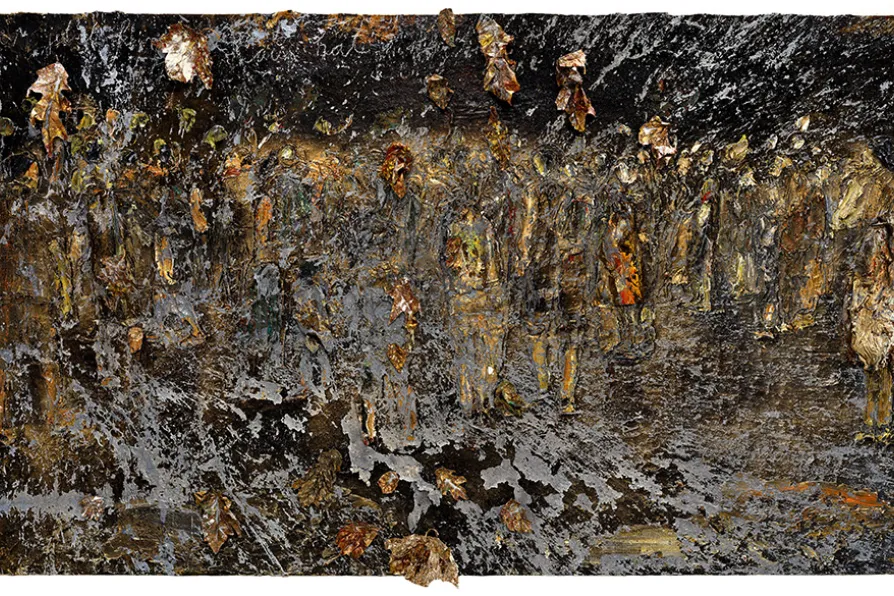ALAN McGUIRE welcomes the complete poems of Seamus Heaney for the unmistakeable memory of colonialism that they carry

 Anselm Kiefer, Wer jetzt kein Haus hat (Whoever has no House now), 2023
[Georges Poncet]
Anselm Kiefer, Wer jetzt kein Haus hat (Whoever has no House now), 2023
[Georges Poncet]
Anselm Kiefer, Early Works
Ashmoleon Museum, Oxford
THE exhibition of Anselm Kiefer’s Early Works at the Ashmolean Museum, Oxford, is profound and timely.
Like all exhibitions of this internationally renowned artist, it begins with recent pieces. Soon to be 80 years old, we start with Autumn (1973-74), a large-scale painting of cool greys and warm browns with gold leaves — wandering in the forest of his years. Forest (Wald) lies in the mythology in many cultures — early Hinduism with its renunciates going into the forest to meditate until they find the “Absolute.” In the dark and twisted forests of northern Europe, where writers like the Grimm Brothers worked their terrifying stories, the tall tree soldiers of Nazi mythology are marching as one.
Autumn precedes his early and controversial work; Occupations, a series of actions where he dons his father’s Wehrmacht greatcoat and gives the banned straight right hand salute in significant European places. Fur Jean Genet (1969) is one of these artist’s books

Peter Mitchell's photography reveals a poetic relationship with Leeds













